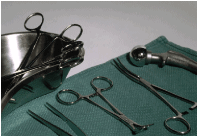CARL WATTS & ASSOCIATES
November 19, 2012

|
Washington DC
|
tel/fax 202 350-9002 |
Medical & Dental Expenses
What's Deductible
What's Deductible
|
Troubles viewing this message? View in browser online here
|
|
There are certain medical expenses that are not deductible. These expenses include:
|
||||||||||||||||||||||||||||||||||||||||||||||||||
|
||||||||||||||||||||||||||||||||||||||||||||||||||
| The tax deduction on your tax return for a qualified long-term care insurance policy's premium is limited depending on the age, for instance: under 41 years of age, the maximum tax deductible premium is $340; for persons over 70, the maximum tax deductible premium is $4,240. |
||||||||||||||||||||||||||||||||||||||||||||||||||
 |
||||||||||||||||||||||||||||||||||||||||||||||||||
| You must subtract all reimbursements that you have received for medical or dental expenses from any source throughout the year from your calculation of total medical expenses. | ||||||||||||||||||||||||||||||||||||||||||||||||||
|
If the cost of medical equipment or property was deducted from your taxes in a previous year and you sell that property in a later year for a profit you may have to record a capital gain. The taxable gain is the amount of the selling price more than the adjusted basis of the equipment or property.
|
||||||||||||||||||||||||||||||||||||||||||||||||||
| It's generally advantageous to utilize pre-tax savings plans to pay for out-of-pocket medical expenses compared to taking an itemized deduction. That's because FSA, HSA, and HRA plans hold pre-tax money, and so any medical expenses paid out of these plans represent an 100% deduction for the expense. The itemized deduction, by contrast, is at best only partially tax-deductible. |
||||||||||||||||||||||||||||||||||||||||||||||||||
| The itemized deduction for medical and dental expenses is an item that affects a significant number of individuals who are stuck in the Alternative Minimum Tax. Depending on the type of health insurance you have (high deductible plan with a Health Savings Account versus a high amount of coverage with a small copay), and the type of expense incurred (elective procedures versus immediate medical needs), there may be some fairly easy opportunities for AMT savings. |
||||||||||||||||||||||||||||||||||||||||||||||||||
|
If you are self-employed and have a net profit for the tax year, or share in a partnership or a shareholder in an S corporation, you may be able to deduct, as an adjustment to income, the total amount paid for medical insurance for yourself, spouse and dependents.
 |
||||||||||||||||||||||||||||||||||||||||||||||||||
| You are eligible for this deduction without itemizing, since you can claim it as an adjustment to income. |
||||||||||||||||||||||||||||||||||||||||||||||||||
| Wishing you all good health, we’d like to add that professional help in dealing with all matters pertaining to tax is always advisable. |
||||||||||||||||||||||||||||||||||||||||||||||||||

|
Doubtless medical expenses are not on your wish list, but, if you have to pay more than usual for medical care, you should know if and what you can deduct on your tax return.
|
||||||||||||||||||||||||||||||||||||||||||||||||||||||||||||||||||||

As you probably know, if you itemize deductions on Schedule A of your form 1040, you are able to deduct your unreimbursed medical expenses, but only if the total expenses claimed exceed 7.5% of your AGI (adjusted gross income) and they are not higher than one half of your AGI.
|
||||||||||||||||||||||||||||||||||||||||||||||||||||||||||||||||||||
|
|
||||||||||||||||||||||||||||||||||||||||||||||||||||||||||||||||||||
|
Starting with the year 2013, the 7.5% threshold will increase to 10% of adjusted gross income.
|
||||||||||||||||||||||||||||||||||||||||||||||||||||||||||||||||||||
|
If possible, consider paying medical expenses in the tax year in which you will have a lower AGI, because the lower your AGI, the greater the allowable medical tax deduction on your tax return. Consider postponing or accelerating elective treatments, thereby increasing the percentage for a particular tax year.
|
||||||||||||||||||||||||||||||||||||||||||||||||||||||||||||||||||||
|
You may deduct on your tax return qualified medical expenses you pay for yourself, your spouse, and your dependents, including a person you claim as a dependent under a multiple support agreement. If either parent claims a child as a dependent under the rules for divorced or separated parents, each parent may deduct on their tax return the medical expenses he or she actually pays for the child.
|
||||||||||||||||||||||||||||||||||||||||||||||||||||||||||||||||||||
|
|
||||||||||||||||||||||||||||||||||||||||||||||||||||||||||||||||||||
|
You can also deduct on your tax return medical expenses you paid for someone who would have qualified as your dependent except that the person didn't meet the gross income or joint tax return test.
|
||||||||||||||||||||||||||||||||||||||||||||||||||||||||||||||||||||
|
|
||||||||||||||||||||||||||||||||||||||||||||||||||||||||||||||||||||
|
Expenses paid for the medical care of a child who receives more than half of his or her support from you is tax deductible on your tax return, even if you are not entitled to a personal exemption for the child because he or she has too much income.
|
||||||||||||||||||||||||||||||||||||||||||||||||||||||||||||||||||||

Medical and dental expenses include amounts paid for the diagnosis, cure, relief, treatment, or prevention of disease, and for treatments affecting any part or function of the body, but they must be primarily for the alleviation or prevention of a physical or mental defect or illness.
|
||||||||||||||||||||||||||||||||||||||||||||||||||||||||||||||||||||
|
Medical care expenses include the insurance premiums you paid for policies that cover medical care or for a qualified long-term care insurance policy covering qualified long-term care services.
|
||||||||||||||||||||||||||||||||||||||||||||||||||||||||||||||||||||
|
If you are an employee, medical expenses do not include that portion of your premiums paid by your employer under its sponsored group accident or health policy or qualified long-term care insurance policy. Further, medical expenses do not include the premiums that you paid under your employer-sponsored policy under a premium conversion policy; for example, a federal employee, participating in the premium conversion program of the Federal Employee Health Benefits (FEHB) program, may not include the premiums paid for the policy as a medical expense
Deductible medical expenses may include but are not limited to: |
||||||||||||||||||||||||||||||||||||||||||||||||||||||||||||||||||||
|
